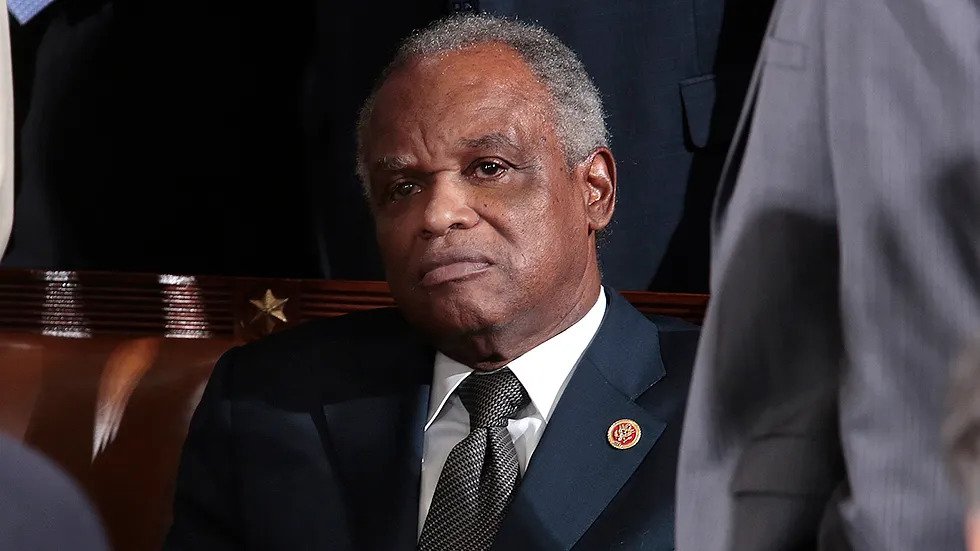As House Democrats intensify their efforts to safeguard the country’s largest nutrition program from impending cuts, a perplexing absence in their ranks raises concerns. The prominent figure usually leading the charge, the top Democrat on the House Agriculture Committee, is conspicuously missing from their new strategy. Instead, a task force on agriculture and nutrition, led by Rep. Bennie Thompson (D-Miss.), has taken the reins, leaving observers puzzled and questioning the reasons behind this unusual move.
A Controversial Task Force:
In late May, Democratic Leader Hakeem Jeffries unveiled the task force to counter ongoing GOP attempts to restrict the Supplemental Nutrition Assistance Program (SNAP), previously known as food stamps, which provides crucial aid to over 40 million low-income Americans. Traditionally, this responsibility falls upon Democrats on the Agriculture Committee, spearheaded by the current ranking member, Rep. David Scott (D-Ga.).
Rep. Thompson downplays any extraordinary circumstances surrounding the task force’s formation, dismissing it as a common practice. However, numerous lawmakers, Hill staff, and lobbyists assert that creating a parallel body is highly uncommon, if not unprecedented. This raises a troubling question: Why does the Democratic leadership perceive the need for a separate entity to address an issue that should be under the Agriculture Committee’s purview?
Dissatisfaction and Anxiety:
The task force’s creation reflects broader dissatisfaction within Democratic ranks over Rep. Scott’s efforts to counter Republican attacks on SNAP. Lawmakers are growing increasingly anxious about the GOP’s bid to restrain nutrition programs during the upcoming farm bill negotiations, a pivotal legislative package distributing around $1 trillion in funding across hunger relief, farming, conservation, and rural community support.
Uncertainty Surrounding Rep. Scott:
A cloud of uncertainty hovers over Rep. Scott, with concerns raised by his colleagues about his health and ability to lead the committee minority effectively. These concerns date back to last year, and with a major farm bill on the horizon, the nation cannot afford any missteps. As some Democrats anticipate Rep. Scott not seeking re-election next fall, whispers suggest Rep. Thompson as a potential successor – a well-respected, senior Black Democrat with experience on the Agriculture Committee, gaining favor with Democratic leaders.
Revealing Signs of Leadership Lapses:
Further compounding concerns about Rep. Scott’s leadership are the telling signs of his limited involvement in committee activities. Notably, he rarely attends subcommittee hearings, abstains from participating in critical out-of-town farm bill listening sessions, and no longer confronts reporters or holds press conferences to defend nutrition programs against Republican attacks. In stark contrast, GOP Agriculture Committee Chair G.T. Thompson (R-Pa.) actively engages with reporters, attends hearings, and actively participates in listening sessions.
Task Force Gains Momentum:
Despite a relatively quiet start, the task force has grown more active, hosting a roundtable in the Capitol akin to a Democrat-only House Agriculture Committee hearing, complete with testimony from influential farm interests. Additionally, they have conducted several out-of-town listening sessions. Though no further events are scheduled yet, the task force plans to present a list of farm bill recommendations to the caucus and then the House Agriculture Committee.
Negotiating Confusion:
The task force’s role has, however, elicited confusion among Republicans about whom they will be negotiating with during the farm bill discussions. The uncertainty surrounding Rep. Thompson’s involvement raises questions about the task force’s impact on the negotiation process and adds an additional layer of complexity to the already contentious issue.
Conclusion:
As the nation gears up for crucial farm bill negotiations, the absence of the top Democrat on the House Agriculture Committee and the creation of a parallel task force raise valid concerns. It is incumbent upon the Democratic leadership to address these concerns transparently, actively engage with committee activities, and provide decisive leadership to navigate through this critical period for agricultural policy. The nation’s food security and the well-being of millions of Americans relying on nutrition programs hang in the balance, making effective leadership and unity within the Democratic party all the more paramount.
Photo Credit: Greg Nash


